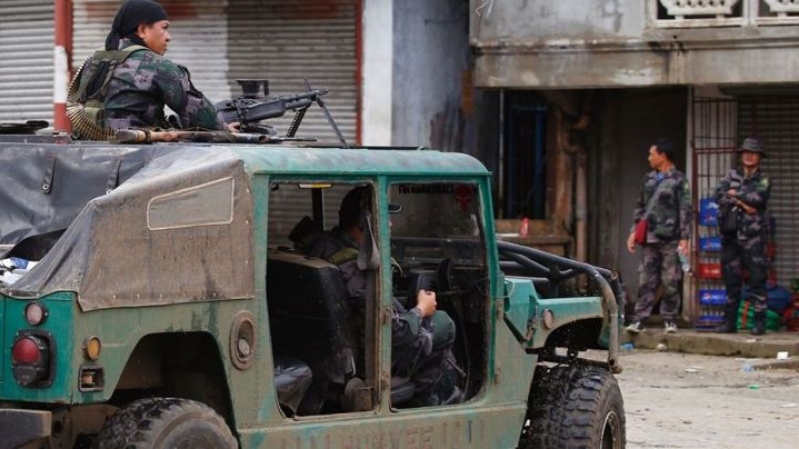
ISIS-linked militants in the city of Marawi in the Philippines have taken hostage hundreds of people, and most of these hostages are Christians. It has been close to a week now in the southern Philippines as the Muslim militants maintain their ground in certain parts of the city, striking fear and terror into the hearts of the inhabitants there. Even most of the other peace-loving Muslims have fled from the city, as it is better to be alive than dead. A Catholic priest who claimed that he has been kidnapped by the ISIS-linked militants also mentioned that he has been held hostage with over 240 other hostages. This Catholic priest has appealed to President Rodrigo Duterte in order to end the terror spree that has turned Marawi into a deserted area. Rev. Teresito “Chito” Suganob, who is the vicar general of the Prelature of Marawi, saw his plea on video go viral via Facebook. He pled for President Duterte to consider the lives of the hostages, where the majority of them are of the Christian faith. His request? To bring the airstrikes and air attacks to a halt.
The ISIS-linked gunmen are linked to Isnilon Hapilon, who happens to be a commander of the Abu Sayyaf militant group who has also pledged allegiance to ISIS. These terrorists kicked off their terror campaign by burning buildings, seizing Suganob and his flock while ensuring that the now famous ISIS flag is raised in the area as a sign of its subjugation.
MindaNews reported that Suganob’s video mentioned, “Mr. President, please follow your heart, please consider us. You know it’s hard. Mr. President, from time to time we hear the outburst of guns from your ground of enemies; heavy firearms from your side. It’s hard. They don’t ask for anything. They just ask that you to leave this place peacefully. Don’t give so much attack. The city in my background is ruined like this.”
President Duterte is definitely a loose cannon in his very own way, having waged a war on drugs in the Philippines that has drawn a whole lot of flak from different groups, organizations, and even leaders of other countries. Heck, when you are able to call Obama a “son of a whore”, you know just what kind of company that you are dealing with. He is basically running a no-nonsense outfit, and while his stance on drugs can be rather tough, it is interesting to note that it has been pretty effective so far, too.
Daesh militants, also known as Islamic State (or ISIS or ISIL, which are equally interchangeable), has been terrorizing the world for a fair number of years already. Their battle in the Middle East has spread to other parts of the world with disenfranchised Muslims, gaining sympathy from Muslims of all walks of life, regardless of their educational background or economic status. This is definitely one of the ideologies of Islam taken at the most fundamental of levels. In fact, one can even say that ISIS militants are true followers of Muhammad and his teachings, as they follow it right down to the letter.
We do know that the ISIS fighters there have successfully captured a minimum of two US-made M706 Commando 4×4 amphibious armored cars, as this vehicle is armed to the teeth with a 20mm gun and a 7.62mm machinegun, in addition to a DJI Mavic Pro drone that belonged to the Philippines army. Knowing President Duterte, he is not going to let up and be bullied by these disenchanted Muslim terrorists, and will most probably be willing to accept some kind of collateral damage in taking back the city and ridding it of all terrorists.
In any war, it is nearly impossible to avoid any kind of collateral damage. If you were in the shoes of President Duterte, what would your next move be?






